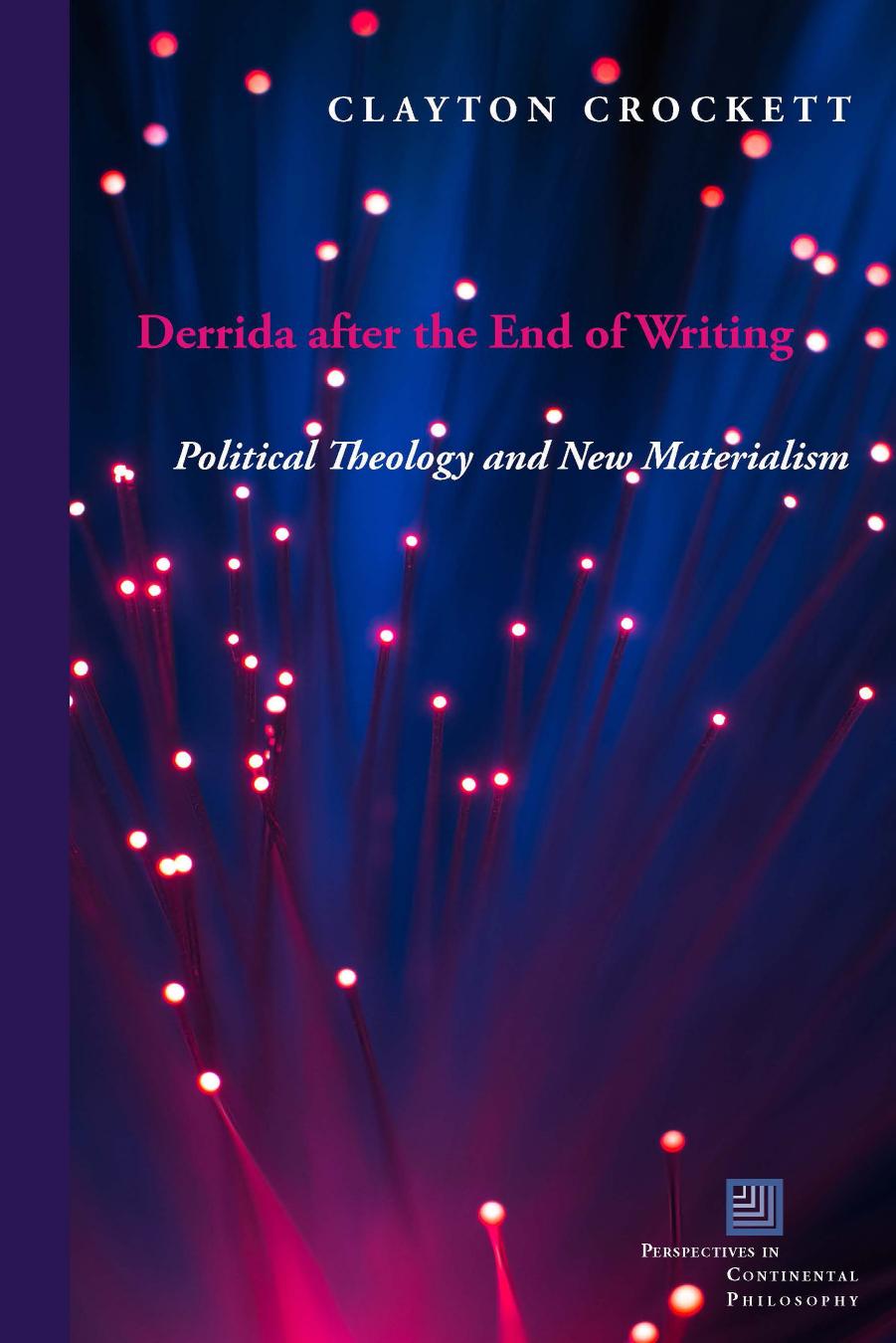Derrida After the End of Writing: Political Theology and New Materialism by Clayton Crockett

Author:Clayton Crockett [Crockett, Clayton]
Language: eng
Format: epub, pdf
ISBN: 9780823277834
Google: 3R6QswEACAAJ
Publisher: Fordham University Press
Published: 2018-01-15T01:09:47.271000+00:00
6
Radical Theology and the Event
Caputo’s Derridean Gospel
In this chapter, I focus on Caputo’s interpretation of Derrida to show how his attention to the event in religious and then theological terms helps liberate Derrida’s philosophy from a specific context of writing. Part of the significance of Derrida’s so-called religious turn, which is not really a turn, is an ability to read Derrida’s philosophy beyond a straightforward paradigm of writing, and more broadly in religious, ethical, and political ways. Here is the significance of the later Derrida, for better or worse, and we will see how Catherine Malabou understands this in the next chapter. It’s not that Derrida himself abandons writing, but that the Anglo-American reading of Derrida is able to loosen up a stricter understanding of Derrida’s relation to writing and language. And Caputo’s The Prayers and Tears of Jacques Derrida is a crucial text for opening up our thinking about Derrida.
It seems a very long time ago now, but Caputo’s book, The Prayers and Tears of Jacques Derrida, published in 1997, inaugurated a sea change in Anglo-American readings of Derrida. There had already been many readers asking questions about the relationship between Derrida and religion, and as discussed in Chapter 1, many of these questions concerned the connection between deconstruction and negative theology, following Derrida’s Jerusalem address, “How to Avoid Speaking: Denials.” In terms of philosophy of religion, theoretical religious studies, and postmodern theology, however, these relations invariably took the form of a kind of analogy. Derrida was asking similar questions to those of religion and theology, but he was not himself a religious philosopher or a theologian.
The work of Mark C. Taylor dominated the reception of Derrida in relation to religion in the 1980s and early 1990s. Taylor’s Erring: A Postmodern A/theology provides an agenda for postmodern theology, with its themes of the death of God, the disappearance of the Self, the end of History, and the closure of the Book. For Taylor, deconstructive writing is a/theological, neither simply theological nor atheological, but in some ways neither and both. Deconstruction subverts theological systems and concepts, although at the same time “the survival of this parasitic discourse presupposes the continuing existence of its host.”1 Theology is the site for Taylor that hosts deconstructive criticism, and deconstruction is a form of “writing that attempts to trace the border and retrace the margin,” which “can, therefore, be described as erring.”2 For Taylor, then, theology is a form of writing, and Derridean deconstruction is a second-order operation upon writing that traces and retraces the margin of writing, the texts of theology, philosophy, literature, and so on.
As another postmodern theologian, Charles E. Winquist, puts it in his 1986 Epiphanies of Darkness, “theology is writing,” which means that there is the possibility of a deconstructive theology just as there exists a deconstructive writing.3 Finally, Carl A. Raschke draws the ultimate conclusion of deconstructive theology when he states that “deconstruction, which must be considered the interior drive of twentieth-century theology rather than an alien agenda, is
Download
Derrida After the End of Writing: Political Theology and New Materialism by Clayton Crockett.pdf
This site does not store any files on its server. We only index and link to content provided by other sites. Please contact the content providers to delete copyright contents if any and email us, we'll remove relevant links or contents immediately.
The Lost Art of Listening by Michael P. Nichols(7483)
Why I Am Not A Calvinist by Dr. Peter S. Ruckman(4135)
The Rosicrucians by Christopher McIntosh(3504)
Wicca: a guide for the solitary practitioner by Scott Cunningham(3158)
Signature in the Cell: DNA and the Evidence for Intelligent Design by Stephen C. Meyer(3120)
Real Sex by Lauren F. Winner(3000)
The Holy Spirit by Billy Graham(2934)
To Light a Sacred Flame by Silver RavenWolf(2802)
The End of Faith by Sam Harris(2724)
The Gnostic Gospels by Pagels Elaine(2515)
Waking Up by Sam Harris(2448)
Nine Parts of Desire by Geraldine Brooks(2355)
Jesus by Paul Johnson(2347)
Devil, The by Almond Philip C(2322)
The God delusion by Richard Dawkins(2295)
Heavens on Earth by Michael Shermer(2268)
Kundalini by Gopi Krishna(2171)
Chosen by God by R. C. Sproul(2151)
The Nature of Consciousness by Rupert Spira(2085)
